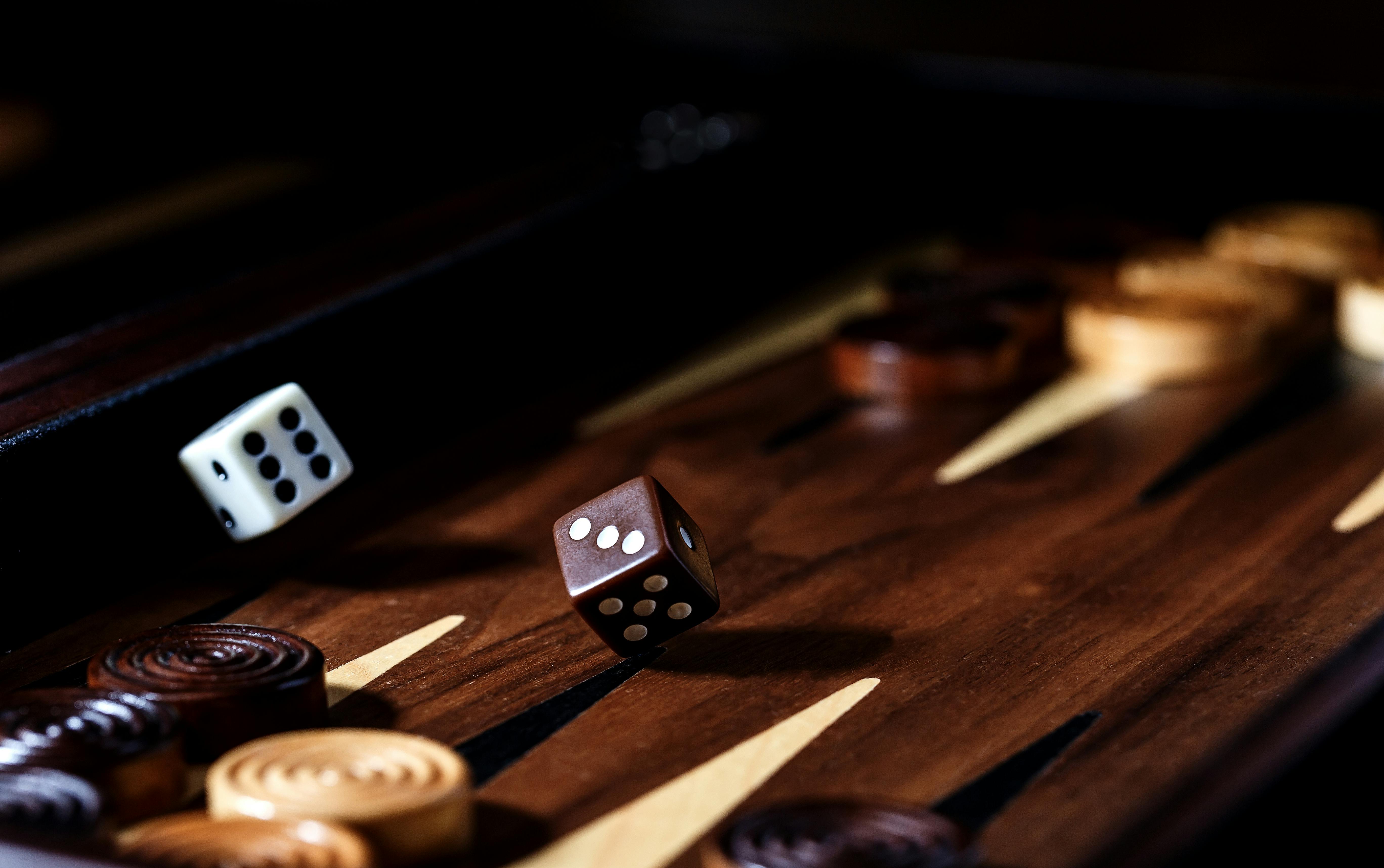Dice, Doubt, And Decision Making: How Backgammon Can Help Marketers Deal With Uncertainty
05 Apr, 2024
All difficult decisions are difficult precisely because you are making them under conditions of uncertainty. However, Behavioural Science Consultant, Alec Barr, thinks that all marketers could learn a thing or two if they played backgammon.
Most of what I learned about risk, I learned from backgammon.
It’s a superficially simple game of luck and skill. Roll the dice. Move your pieces around the board. Do it faster than your opponent and you win. Easy.
Masquerading under that simplicity is a cryptic world of probability and risk and reward. There are no fait accomplis, as the roll of the dice ushers in a little randomness with every turn. The best laid plans are routinely dashed at the mercy of probability.
Because of this – and unlike chess – the best player doesn’t always win. In fact, you can play perfect backgammon and still lose. The top grandmasters have a collective loss rate bordering on 40%.
It's a lesson in humility, strategy, ambiguity, and the slings and arrows of luck – a reminder that the future is a fog we navigate with best guesses rather than clear sight.
Existence, in all its messy glory, operates on the same principles, where every decision is a roll of the metaphorical dice.
Backgammon is life, localised to a board game.
In both, we are asked to make perfect decisions with imperfect information, regularly chastising ourselves for things wholeheartedly out of our control.
This is particularly true of marketing, where there are no guarantees, expertise is expected, and the consequences of a misstep can be grave.
Should I push back on that feedback? Should we lead with that controversial adcept? How do I ask for more budget?
If you knew the rightness or wrongness of an outcome before you chose, you’re not really making a choice. Almost all difficult decisions are difficult precisely because you are making them under conditions of uncertainty.

Both backgammon and life are high-stakes games dealing in probabilities. In each case, the top “players” aren’t the occasionally lucky ones, they’re the ones who can navigate this relentless uncertainty with grace, calmly making decisions that seek to optimise their odds by small degrees. They’re the ones who think in potentialities, not certainties.
Humans, however, are notoriously terrible at grasping probability.
I’ll prove it.
How often do you think miracles occur?
Turns out: very regularly! Thanks to the sheer volume of "stuff" that happens in our lives, the average human is statistically likely to experience a “one-in-a-million” chance event about once every 30 days. (Keep an eye out if you’ve not had your miracle this month).
Our intuition clearly fails us when it comes to chance events. And this is what makes decision making a learned skill.
So, how do we make better decisions in a world governed by randomness?
As with backgammon, it's not the roll that defines us; it's what we choose to do with it.
Firstly, we must decouple decision quality from decision outcome.
We're quick to label decisions as “good” or “bad” based on outcomes. But judging decisions solely by results is a trap. The smart player knows that a well thought out move can still lead to defeat, just as much as reckless gamble can pay off. The output is not controllable, but the input is.
To get good at decision making, practise treating success or failure as immaterial. Focus on the process, on the quality of the decision, not the fickleness of fate. Gather information. Seek advice from people who will shine a spotlight on your biases. Envisage regret levels. And analyse every eventuality for both its likelihood and its expected utility.
Second, embrace the uncertainty and take calculated risks. Seek what Taleb calls “positive optionality” – situations with unforeseen potential upside and limited downside. “Luck” is often the name we give to this low-probability upside, and you can increase your surface area exposure to it by taking more chances, more often. Have that coffee with that stranger. Pick up that project. This is how you engineer serendipity.
In backgammon, playing it safe guarantees mediocrity. In life, small, smart wagers compound over time. The bold thing to do is to take 1% more risk, consistently. Over a long enough timeline, this habit will nudge the odds in your favour.
Finally, autopsy your decisions, especially the favourable ones. We tend to agonise over decisions that led to bad outcomes, downplaying luck's role and heaping blame on ourselves. But rarely do we scrutinise the decisions behind our successes. Consciously examine the role of luck and the quality of your decision-making processes in both successes and failures. This will not only yield valuable insights, but temper pride, and soften the sting of failure.
Backgammon taught me to lean into uncertainty, to mentally separate decision quality from every outcome, and continually strive for a little bit more risk. It taught me how to play the game of life with a bit more skill.
The next time you face a tough choice, remember: you're not just making a decision, you're stepping into uncertainty. Like any skilled player, your goal isn't to control the dice – it's to adjust your move.
And remember, “It is possible to commit no mistakes, and still lose. That is not a weakness, that is life”.
Alec Barr will be speaking and expanding on this topic at MAD//Fest this July!
